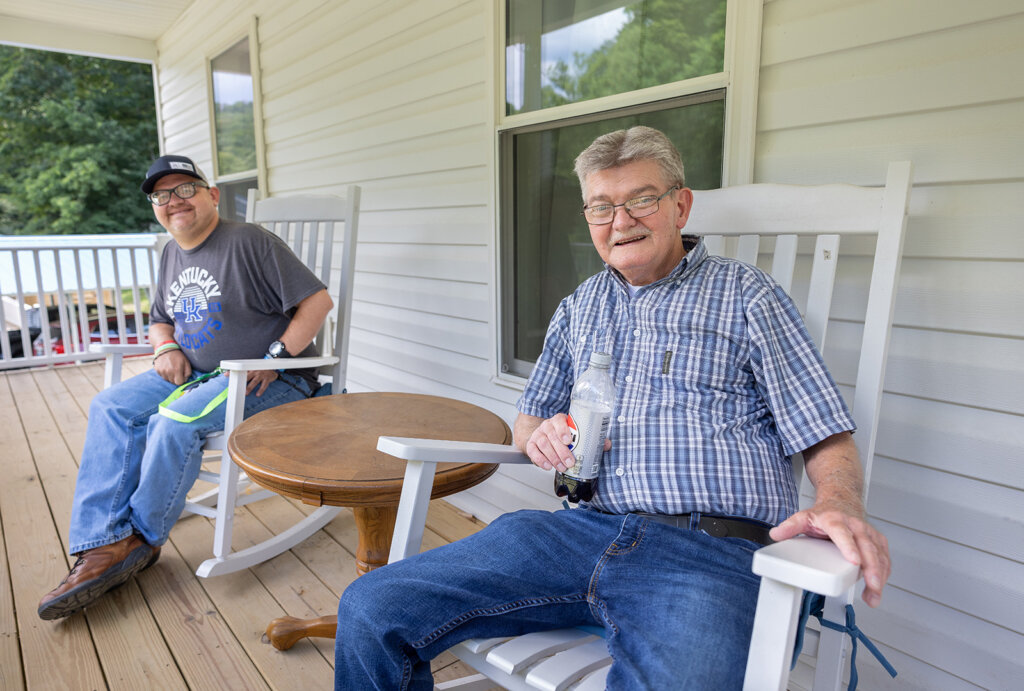HIGHLIGHTS
GET TO KNOW US
GET INVOLVED
MEDIA

REGIONS
California, Georgia, Chicago, North Carolina, New Orleans, Puerto Rico, Kentucky, Navajo Nation, Washington, D.C., Hawaii
INTERNATIONAL
Resource Navigation & Disaster Case Management
In the wake of a disaster, figuring out the next steps can be overwhelming. Whether it’s due to a wildfire, flood, hurricane, or a violent conflict, people are often left without access to critical resources – including their own homes and belongings. How do you start the painful process of trying to rebuild your life after losing almost everything?
CORE has extensive experience in community recovery work and has responded to disasters across five continents. We know what it truly takes to rebuild after a catastrophe. Through two key programs, Resource Navigation and Disaster Case Management, CORE works to fill critical gaps to help people get the support they need in both the short and long term. Ultimately, our goal is to bring people back home.
What is Resource Navigation?
Recovery often involves deadlines, multiple applications, moving distribution points, changing resources, and confusing technical language; it can all be very overwhelming.
Through our Resource Navigation program, CORE provides a team to help navigate the process of recovery after a disaster. This can include helping people with FEMA appeals, completing assistance applications, and connecting them with resources such as local food pantries, distribution events, and shelters. This team focuses on addressing urgent, short-term needs – and making sure people understand the various resources that are available to them. By serving as a knowledge hub, we help streamline the process for people to secure life-changing support.
What is Disaster Case Management?
CORE’s Disaster Case Management program guides people through the long-term recovery process, with case managers assigned to specific families for an average of two years. By forming these sustained relationships, CORE gains a clear understanding of each family’s unique needs and can help cut through the red tape to accelerate the rebuilding process. Disaster case managers help families and individuals navigate often-complex processes to receive support from government agencies and nonprofit partners.
Successful disaster case management is not one-size-fits-all – it’s a personalized service tailored to each person’s unique needs. This approach streamlines recovery efforts by ensuring people get the specific resources they need when they need them. This program also helps support the local economy after a disaster, as we train and hire local case managers to help their own community.
Case Study: Kentucky Floods
Torrential rainfall triggered catastrophic flooding in central Appalachia in 2022. Residents of Eastern Kentucky were severely impacted, as this area is difficult to reach with many homes located in rugged, mountainous terrain. The disaster, the first of its kind to hit the region, caused dozens of deaths, injuries, and destruction – and displaced hundreds of people from their homes.
CORE immediately responded, distributing critical resources like food, water, and hygiene and cleaning supplies to those impacted in Letcher County. But with so many people displaced from their homes, finding ways to support their long-term recovery was essential. CORE partnered with Eastern Kentucky Concentrated Employment Program to hire a local team of 39 disaster case managers dedicated to connecting flood-affected families with vital housing resources. Here’s how they made an impact:
1,100+ cases supported – more than any other organization in the area
$5.6 million worth of building materials, furniture, and home goods secured
300 FEMA appeals processed, resulting in $2 million in additional funding
In addition to helping people who lost their homes, the hiring of these local case managers boosted the local economy through the infusion of $883,000 in salaries (as of September 2023) in the disaster-affected areas. As they receive training, skills development, and relevant work experience, they will continue to build the resilience of their community.

“My experience as a case manager significantly expanded my expertise in disaster recovery and resilience while also strengthening my ability to connect with individuals and effectively manage emotions in the aftermath of a disaster. I gained invaluable insight into the challenges faced by survivors and case managers, particularly the gaps in resource navigation” — Jeannie Trent, now an Implementation Specialist with CORE
Brand New Home Restores Hope for Mr. Gross and Family

CORE’s first new home build in Kentucky was for an elderly gentleman, Mr. Gross, and his disabled son. When we met them, they were trying to survive in their heavily damaged home, and their living conditions were deplorable. Our disaster case managers moved quickly to get Mr. Gross and his son into a better environment. CORE worked closely with the Kentucky Travel trailers to move them into temporary housing.
We also contacted FEMA and began the FEMA appeal process to request funding support for him. Mr. Gross and his son successfully received the maximum grant. We also referred Mr. Gross for new housing through the local housing authority, HOMES Inc. He was awarded the first CORE case management new home build in Letcher County. Today, Mr. Gross and his son live in a brand new three-bedroom home out of the flood zone.
“I never dreamed that my son Jason and I would have a home like this…Kim Miles, the Letcher County CORE supervisor, never stopped working for me and Jason. Kim has been an angel sent to us,” Mr. Gross said.
HIGHLIGHTS
GET TO KNOW US
GET INVOLVED
MEDIA

REGIONS
California, Georgia, Chicago, North Carolina, New Orleans, Puerto Rico, Kentucky, Navajo Nation, Washington, D.C., Hawaii
INTERNATIONAL

CORE is a charitable 501(c)(3) nonprofit organization. Federal tax ID: 27-1703237.
© 2024 | CORE – Community Organized Relief Effort | +1 (323) 934 4400
910 N Hill St Los Angeles, CA 90012